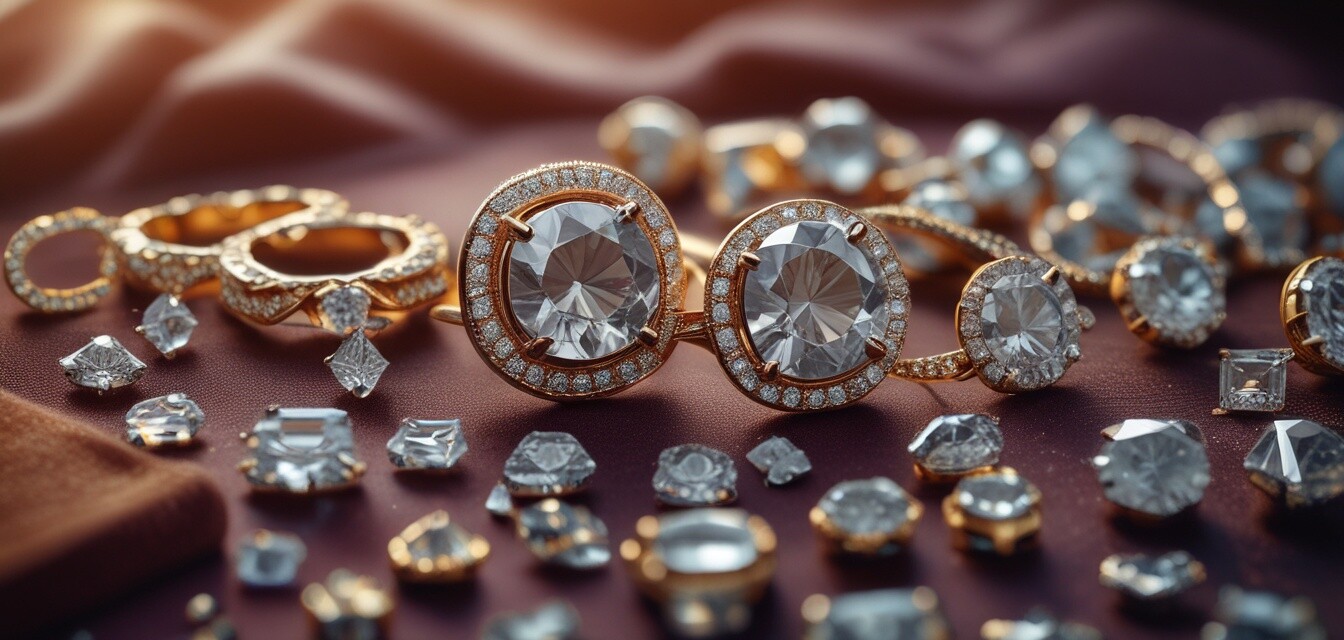
Trends in Ethical Sourcing for Jewelry
The jewelry industry is undergoing a sea change in its approach towards ethical sourcing. As consumers become increasingly aware of environmental and social impacts, the demand for responsibly sourced materials is on the rise. In this article, we will explore how these evolving ethical practices are influencing consumer choices and brand reputations in the jewelry market.
- Ethical sourcing is becoming a standard rather than an exception in the jewelry industry.
- Transparency in the supply chain is key to building consumer trust.
- Brands that prioritize ethical sourcing often enjoy enhanced reputations and customer loyalty.
- Emerging technologies are playing a significant role in verifying the authenticity of ethically sourced materials.
- Consumers are increasingly willing to pay a premium for ethically sourced products.
The Importance of Ethical Sourcing in Jewelry
Ethical sourcing refers to the procurement of materials in a way that prioritizes social responsibility and environmental sustainability. In the jewelry industry, this means sourcing diamonds, gemstones, and precious metals from suppliers that ensure fair labor practices, environmental protection, and transparency.
As recent studies have shown, a significant percentage of consumers are now favoring brands that demonstrate a commitment to ethical sourcing. This trend is reshaping the jewelry market, pushing companies to adapt to the changing demands of the modern consumer.
Consumer Awareness and Trends
In the past, many consumers purchased jewelry without understanding where the materials originated. However, with growing awareness brought about by documentaries, social media, and grassroots movements, consumers are now asking questions and demanding accountability from brands.
According to recent surveys:
| Consumer Attitude | Percentage |
|---|---|
| Willing to pay more for ethical products | 75% |
| Believe brands should be transparent about sourcing | 85% |
| Have switched brands for ethical reasons | 60% |
How Ethical Sourcing Impacts Brand Reputation
Brands that commit to ethical sourcing often find themselves in better standing with consumers. Here’s how:
- Trust and Loyalty: When brands are transparent about their practices, they build trust, leading to customer loyalty.
- Market Differentiation: Ethical sourcing can differentiate a brand in a saturated market.
- Positive Publicity: Brands focusing on sustainability often receive positive media coverage.
- Attracting New Customers: Ethical consumers are more likely to engage with brands they believe share their values.
Case Studies in Ethical Sourcing
Several pioneering brands are setting examples of how ethical sourcing can yield positive results:
| Brand | Ethical Initiative | Impact |
|---|---|---|
| Brand A | Certified Fair Trade Diamonds | Increased sales by 40% over 2 years |
| Brand B | Traceable Raw Materials | Enhanced customer trust leading to repeat purchases |
| Brand C | Collaboration with Artisans | Boosted brand image and White House recognition |
The Role of Technology in Ethical Sourcing
Emerging technologies are revolutionizing how the jewelry industry tracks and verifies ethical sourcing. Here are some innovations making waves:
- Blockchain: Provides a transparent and unalterable record of material sourcing.
- 3D Printing: Allows for sustainable fabrication methods reducing waste.
- Artificial Intelligence: Helps in identifying unethical sources by analyzing vast amounts of data.
- Consumer Apps: Allow customers to scan products for sourcing information at point-of-sale.
Consumer Expectations Going Forward
As consumers continue to prioritize sustainability, brands must stay ahead of the curve. Not only do they need to offer ethically sourced products, but they also need to communicate these efforts effectively to their audience. The future of the jewelry industry lies in maintaining transparency, building trust, and adhering to ethical standards.
Pros
- Enhanced customer loyalty and brand reputation.
- Positive media attention and increased brand visibility.
- New customer segments interested in ethical products.
- Long-term cost savings through sustainable practices.
Cons
- Higher initial costs associated with ethical sourcing.
- Limited availability of ethically sourced materials.
- Need for continuous education on sourcing practices.
- Potential backlash if ethical claims are found to be misleading.
Conclusion
In conclusion, ethical sourcing is not just a trend; it's a fundamental shift in the jewelry industry that reflects changing consumer demands. Brands that prioritize ethical practices not only gain trust and loyalty from customers but also enhance their reputation in a competitive market. By leveraging emerging technologies and maintaining transparency, the jewelry industry can successfully adapt to the growing importance of ethical sourcing.
For more insights, check out our other articles in the News and Trends section. Stay connected with the latest updates on bracelets, earrings, and more!